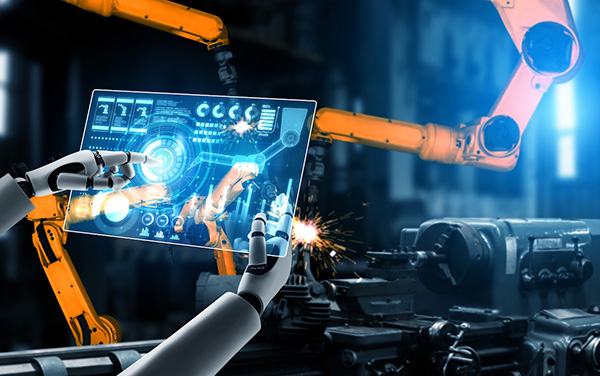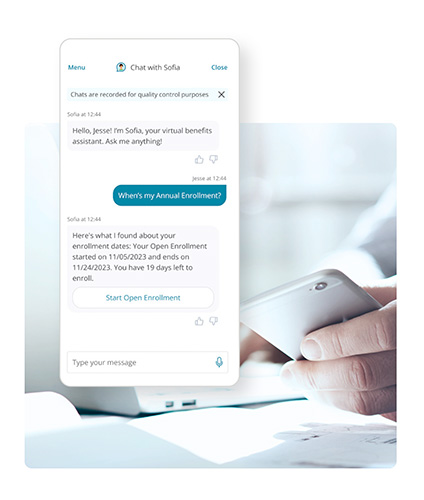To keep pace with the projected growth of the manufacturing industry, leaders must think more holistically about employee satisfaction and the pivotal role of employee benefits.

By Kimberly Dunwoody
The manufacturing industry may need to add nearly 4 million new jobs during the next decade to keep pace with economic growth. No wonder attracting and retaining talent is a top concern reported by a majority of manufacturers. In fact, industry analysts have expressed concerns that without changes, as many as half of these needed jobs could go unfilled.
Today’s tight labor markets present a complicated and multi-faceted challenge, but there is one piece of the workforce puzzle that deserves a closer look—employee benefits.
Employee benefits are an important element of compensation that influences employees’ overall perceptions of value. Yet, our recent employee benefits study showed that the overwhelming majority experience benefits confusion. Naturally, this threatens the overall value prop of benefits packages with issues such as low steerage into valuable benefits.
With the help of an emerging set of technology tools, however, employee-centered manufacturing organizations can avoid benefits confusion and build stronger relationships between employees and the HR function. Two tools—personalized decision support and empathetic AI—are reimagining the benefits experience. They are making it possible to address the unique challenges of benefits administration in manufacturing, while also scaling individualized support across tens of thousands of employees.
Benefits are a powerful tool for attracting and retaining talent, and new research has uncovered an important, yet potentially underappreciated, reason for their influence. The total benefits package impacts how employees perceive levels of empathy at their workplace, a critical factor in their overall satisfaction. In a recent study, 88% of employees say they would be willing to stay with their organization if it empathized with their needs and 67% said they’d be willing to work longer hours for an empathetic employer. Even 52% said they’d take slightly less pay for an employer deemed more empathetic.
Within the manufacturing sector, benefits administration and the employee experience can be hampered by several factors.
Complex Plans. Manufacturing companies often offer a variety of health insurance plans, dental plans, vision plans, and other benefits. Employees can struggle to understand the intricacies of these plans and to choose the options that best suit their needs.
Lack of Understanding. The manufacturing industry is one of the most likely to offer high-deductible health plans (HDHPs) paired with health savings accounts (HSAs). This benefits option is often the most cost-effective choice, but it’s one that has long confused many employees, leaving them unable to maximize the value of their benefits. But, Businessolver’s latest Benefits insights report finds that personalized decision support drives a 67% opt-in for high-deductible health plans—a stark contrast to the 19% who choose it without the assistance of technology.
Shifting Workforce. The manufacturing workforce is fluid, with employees moving between companies or locations. This can make it difficult for them to keep track of their benefits options and make informed decisions.
A large contributor to many of the barriers that arise between employees and their benefits is the utter complexity of the healthcare system, which is beyond employers’ control. Layer on top of that the rising cost of care, unique wellbeing needs, and vast confusion, and it’s a recipe for dissatisfaction. Even given the enormity of these challenges, however, the integration of new tech tools provides a highly achievable way for HR teams to make dramatic improvements.
Empathetic AI is an emerging area of artificial intelligence that is purposely trained to recognize and respond to human emotions and sentiments. In the context of benefits administration, it involves incorporating AI and advanced decision support technology to understand employees’ individual needs and preferences, and to then provide them with personalized guidance and support.
Research is providing compelling evidence for the effectiveness of empathetic AI. Recent analysis from Businessolver on the behaviors across 4.4 million employees showed dramatic increases in benefits understanding, question resolution, and satisfaction rates when AI-enabled support is available to them in their benefits experience.
Empathetic AI and personalized decision support also open new doors for manufacturing HR departments to personalize interactions in ways that were previously difficult, or even impossible, across a large, diverse and sometimes geographically dispersed employee base. These technology-driven opportunities add incredible depth to the experience without taxing already stretched HR teams, including:
Personalized enrollment decision support tools that can assess an employee’s unique needs, from lifestyle to financial. By accounting for individual circumstances, decision engines help employees estimate costs, evaluate deductibles, compare premiums, and analyze potential out-of-pocket expenses.

Virtual benefits assistants that can interact with employees 24/7 in increasingly human ways, quickly answering questions, summarizing plan information, and resolving issues through interactive chat sessions.
Tailored communications and reminders based on an employee’s interactions, behaviors, and claims data, helping them utilize available benefits and solutions right when they need them. This eases stress by providing clear information for support or care.
Anytime, anywhere access via mobile phone apps that help employees make in-the-moment decisions based on the intricacies of their available benefits.
What’s more, data generated by employee interactions with each of the above empowers manufacturing HR teams to identify trending topics and issues among employees so they can adjust benefits strategy quickly and responsively as needed.
A more satisfied and engaged employee base is a critical asset during the next period of expected growth for the manufacturing industry. Personalized decision support and empathetic AI, alongside compassionate and empathetic human interaction, can be an important tool in the overall picture of improving the employee experience. With the power of technology combined with human understanding, manufacturers can unlock the true potential of their benefits programs, fostering the culture of value and care that attracts and retains the skilled workforce they need to thrive.

Dr. Kimberly Dunwoody is vice president of member experience for Businessolver. Its 2024 Benefits Insights Report is available at businessolver.com/benefits-insights.
Scott Ellyson, CEO of East West Manufacturing, brings decades of global manufacturing and supply chain leadership to the conversation. In this episode, he shares practical insights on scaling operations, navigating complexity, and building resilient manufacturing networks in an increasingly connected world.